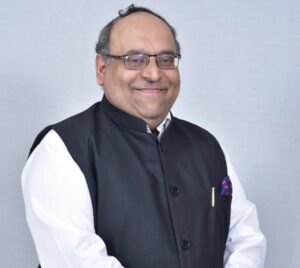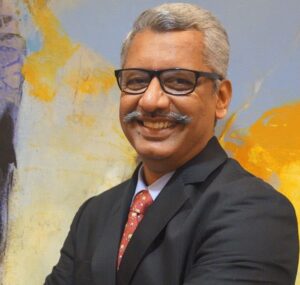With inputs from: Aditya Birla Group | Hero MotoCorp | Tata Power | Toyota | Volvo | Mahindra | Standard Chartered | Piramal Swasthya
What if the company does not make profits? Will your social interventions be able to sustain themselves?
In the last decade, Team CB has posed this question to almost every corporate social responsibility (CSR) decision maker. Of course, then it sounded like an odd probability to corporates that seemed to have perfected the profiteering model, and such queries were best left unattended as far as they were concerned.
Privy to their operational structures and sharp (in some cases shrewd) intellect, CB was convinced that profits were not what worried them – the possibility of profits not doubling every year did. Hence, we desisted from underlining their vague sustainability and sustenance logic, etc. Then came the virus and that changed things, equations and possibilities. The pandemic locked us in and pinched a lion’s share from India Inc.’s CSR kitty. Meanwhile, profits plummeted manifold.
At CB, we reached out to a few large corporations and quizzed them about their post-Covid-19 strategy. Reading and listening to their views and analyses, we realise that these are early days yet for any definite conclusion to be formed about how CSR in India is going to pan out in the immediate future.
In the main, there are these three essential aspects that came up in the course of putting together this feature.
Firstly, CSR spending in FY 2020 may look okay in terms of numbers, with just about 20-25 per cent year-on-year drop in spends, but the majority of it will be spent around battling the pandemic. As the ministry of corporate affairs has allowed, rather ‘requested’, the top companies to utilise their CSR funds of the preceding years also towards Covid-19, a substantial part of the money that was supposedly meant for regular or new CSR programmes has practically been already spent (on meals, ration kits, masks, sanitisers, PPE kits, ventilators) or awaits allocation while resting in PM-CARES Fund.
Secondly, companies, at least the ones that CB interacted with, are quite sure about sustaining their ongoing projects, especially the ones whose direct beneficiaries are vulnerable communities who are bearing the extreme brunt of the lockdown.
Thirdly, and unfortunately, the companies that gave the loudest talks on businesses-do-good-when-they-do-good and we-do-CSR-not-because-it-is-mandatory, etc., remained surprisingly silent on our straightforward queries. Likewise, the companies who relentlessly push their PR machinery to get their we-donated-masks-and-meals stories published excused themselves from answering the queries that, ironically enough, meant to provide some sort of clarity and guidance to the CSR domain as a whole.
The ones who spoke
‘Mystification is simple; clarity is the hardest thing of all.’ ― Julian Barnes, Flaubert’s Parrot
 ‘We will continue to focus on communities who are in the vicinity of our areas of operations. All our companies have been working on multiple social interventions focused on the livelihoods of rural women and other rural development initiatives. This work will continue to happen. At this point, however, the battle against the pandemic is important. Helping those who are most vulnerable and keeping them safe is our priority,’ says Dr Pragnya Ram, group executive president, corporate communications and CSR, Aditya Birla Group.
‘We will continue to focus on communities who are in the vicinity of our areas of operations. All our companies have been working on multiple social interventions focused on the livelihoods of rural women and other rural development initiatives. This work will continue to happen. At this point, however, the battle against the pandemic is important. Helping those who are most vulnerable and keeping them safe is our priority,’ says Dr Pragnya Ram, group executive president, corporate communications and CSR, Aditya Birla Group.
Vijay Sethi, CIO, CHRO and head – CSR at Hero MotoCorp, echoes the same thought: ‘It is too early to comment on CSR investments in the post-Covid-19 scenario as most of our  efforts at the moment are focused on providing aid to vulnerable and suffering communities as well as supporting governments and agencies in battling the virus.
efforts at the moment are focused on providing aid to vulnerable and suffering communities as well as supporting governments and agencies in battling the virus.
‘However, we will revisit our CSR investment plans soon and review the focus areas. The projects focused on the most vulnerable communities, especially children and women, will be our priority. Over the years, our endeavour has been to set up projects that can sustain themselves in the medium to long term, with communities taking ownership of the same. It is extremely encouraging for us that our efforts to help communities in tandem with the goals of the government’s initiatives have borne fruitful results at the grassroots, and we will continue to focus on this aspect of CSR in the coming years. Going ahead, we will explore collaboration opportunities with panchayati raj institutions and district authorities, and also with development-focused local organisations for all-round development of communities.’
 Shalini Singh, head of corporate communication and CSR at Tata Power, stresses upon the point that the company plans a sustained phasing out from community-focused projects by making communities the owners of the same. On our query regarding planned monetary investments in a post-Covid-19 scenario, Singh says, ‘…in CSR, money muscle is not the key to delivering quality initiatives. Investing in social enterprise development, technology, building community’s capacity and tapping into government’s schemes and linkages with financial institutions for investment helps to realise the true value of CSR initiatives. Hence, it is high time we demystify the aspect that CSR initiatives are fund-dependent. Even non-financial resources like knowledge and time investment through volunteering by citizens and employees make a sustained difference and that is the norm followed at Tata Power.’
Shalini Singh, head of corporate communication and CSR at Tata Power, stresses upon the point that the company plans a sustained phasing out from community-focused projects by making communities the owners of the same. On our query regarding planned monetary investments in a post-Covid-19 scenario, Singh says, ‘…in CSR, money muscle is not the key to delivering quality initiatives. Investing in social enterprise development, technology, building community’s capacity and tapping into government’s schemes and linkages with financial institutions for investment helps to realise the true value of CSR initiatives. Hence, it is high time we demystify the aspect that CSR initiatives are fund-dependent. Even non-financial resources like knowledge and time investment through volunteering by citizens and employees make a sustained difference and that is the norm followed at Tata Power.’
 Sudeep Narayan, director, corporate communications, Volvo Car India, strikes a hopeful note: ‘…be it human resource, marketing or philanthropy spending, corporations may have to take a call in re-assessing every cost/budget at this point. However, while these budgets may be stalled, I am confident the economy will bounce back soon after the lockdown ends and it will be business as normal. In a nutshell, the execution of social activities will be postponed by a quarter perhaps.’
Sudeep Narayan, director, corporate communications, Volvo Car India, strikes a hopeful note: ‘…be it human resource, marketing or philanthropy spending, corporations may have to take a call in re-assessing every cost/budget at this point. However, while these budgets may be stalled, I am confident the economy will bounce back soon after the lockdown ends and it will be business as normal. In a nutshell, the execution of social activities will be postponed by a quarter perhaps.’
In a brief exchange, Sheetal Mehta, senior vice president, CSR, Mahindra Group, and executive director, KC Mahindra Education Trust, avoids commenting on the future investment scenario, on the grounds that it will be unfair to their existing partners at the moment.
Karuna Bhatia, head of sustainability, India & South Asia, Standard Chartered Bank, also avoids commenting on any possible impact on their CSR funds, but does update on their social efforts. In her words, ‘…the priority is to provide ration and meals to marginalised communities, with focus on migrant labourers and visually impaired girls and their families, as well as to make available protective gears for our doctors and frontline health workers. Going forward, we are looking at restoring livelihood opportunities and enabling linkages to market and financial institutions for women micro entrepreneurs and farmers.
‘In the long run, we are looking to support research in finding low-cost solutions for our healthcare system. We are already supporting research and development of an indigenised and affordable invasive ventilator prototype by IIT-Kanpur, which is currently under testing.’
While the aforementioned statements underline the uncertainties that the social sector is  faced with presently, Vikram Gulati, country head and senior vice-president, external affairs, public relations, CSR and corporate governance, Toyota Kirloskar Motor, insists that with rationalisation there need not be any significant change in planned projects and spends. This is what he has to say: ‘Despite our continued commitments and CSR spends on pandemic-related activities, we are confident that we will be able to contain any curtailment of our main ongoing programmes. We will be implementing all our planned activities with some rationalisation – rationalisation of the number of beneficiaries or geographies, etc., thereby not significantly impacting the planned activities for the year.
faced with presently, Vikram Gulati, country head and senior vice-president, external affairs, public relations, CSR and corporate governance, Toyota Kirloskar Motor, insists that with rationalisation there need not be any significant change in planned projects and spends. This is what he has to say: ‘Despite our continued commitments and CSR spends on pandemic-related activities, we are confident that we will be able to contain any curtailment of our main ongoing programmes. We will be implementing all our planned activities with some rationalisation – rationalisation of the number of beneficiaries or geographies, etc., thereby not significantly impacting the planned activities for the year.
‘Going further, we are also confident that there will be no significant impact on the outcomes of our CSR activities because at TKM we have adopted a well-defined system which minimises any adverse impact of unforeseen events and exigencies on planned activities. We define the outcomes and processes of the project with stipulated timelines along with a clear exit strategy and a sustenance plan.’
There is no denying that the pace of change and little and big progress made – represented by the growing tribe of self-assured women in rural places, more girls attending schools, English-speaking kids in government schools in slums, hopeful young people at skill-development centres, enthusiastic socialpreneurs – will slow down for now. Socio-economic development will take a backseat for now. Non-profits that were dependent on for-profits are already distressed, relieving letters and forced resignations are being handed out in more numbers than we know, and force majeure is being invoked without a second thought.
Yet, history tells us that the social sector is one of the most resilient communities, with mastery in operating on shoestring budgets, and there is no reason to believe that all the gains made until now are lost. Some recently published pieces by familiar social-sector faces also assure us that this is a temporary phase and that with stabilising of the economy in a few months, the sectoral funding will become normal. At this point, though, it’s a matter of wait-and-watch-with-hope.
In the last five years or so, Team CB has had the opportunity to closely observe and assess if CSR programmes backed by enormous financial impetus were bringing about any real change – in other words, had the much-talked-about and social sector-endorsed ‘theory of change’ started to materialise at the hinterland? Well, the answer is yes, more or less. Many of us have been eyewitnesses to stories of change and lives transformed, which is always an ongoing process but that it is happening at all is the good thing and that must not be undone.
Going forward with lessons learnt
‘Troubles teaches teachable lessons.’― Lailah Gifty Akita

Paresh S Parasnis, CEO, Piramal Foundation, shares some key elements that he believes are the most significant things that his organisation has learnt from their experience while responding to the Covid-19 crisis: ‘Firstly, there is a dire need to strengthen the healthcare ecosystem. It needs systematic investments, human resource, material and infrastructure. Secondly, we need collaborations focused on building a resilient ecosystem, followed by special focus on technological innovations and a continuous pursuit for knowledge sharing amongst global communities to fight and prevent any unprecedented event.’
Parasnis is of the view that as a large part of our population is uneducated, addressing large-scale problems becomes a challenge. His solution for that is ‘special focus made towards education and behavioural change amongst masses.’ ‘We must look at investment in education focusing on quality of education with curriculums including community living, collaboration and responsible behaviour,’ he adds.
Shalini Singh of Tata Power reiterates the same thought. Technology innovation and convergence are the keywords in her response to ideas that are needed to reinvigorate the social sector. She cites examples of the company’s focus on e-learning platforms for skill development as well as education dissemination for schools, alongside inclusion of awareness and behavioural change components across all social programmes for masses to understand the prevention protocols of Covid-19.
Citing the example of how the touch-feel-drive experience of buying a car has gone online, Sudeep Narayan of Volvo endorses going digital for interventions focused on skilling and education. At the same time, he also raises a valid question: How many in rural India, especially school children, have the needed smart devices, enough understanding of being able to assess those devices, and educated parents or guardians to supplement online learning? Are there ways to keep children from marginalised backgrounds digitally abreast with their privileged counterparts? We know the answers to these questions but will have to work hard and collectively to change the content of these answers.
Questions and thoughts
i. Under which head would the company put the funds contributed towards the fight against Covid-19, had there been no mandatory CSR clause in the Companies Act?
ii. There is a larger framework within the Constitution – apart from there being a National Disaster Management Authority – which mentions financial reserves and the sources to accrue funds. The same does not have anything to do with CSR funds of corporates.
iii) Whether NGOs working towards battling the pandemic crisis get funding support from PM-CARES Fund is not yet clear. More so, a recent RTI query has revealed that the Fund is not even a public authority.
iv) Many corporate groups have donated to chief ministers’ relief funds or states’ Covid-19 funds. However, the FAQ section (read the chronology of ministry’s decision making here) from corporate affairs ministry states that the same cannot qualify as CSR, although other activities towards battling the pandemic can.

